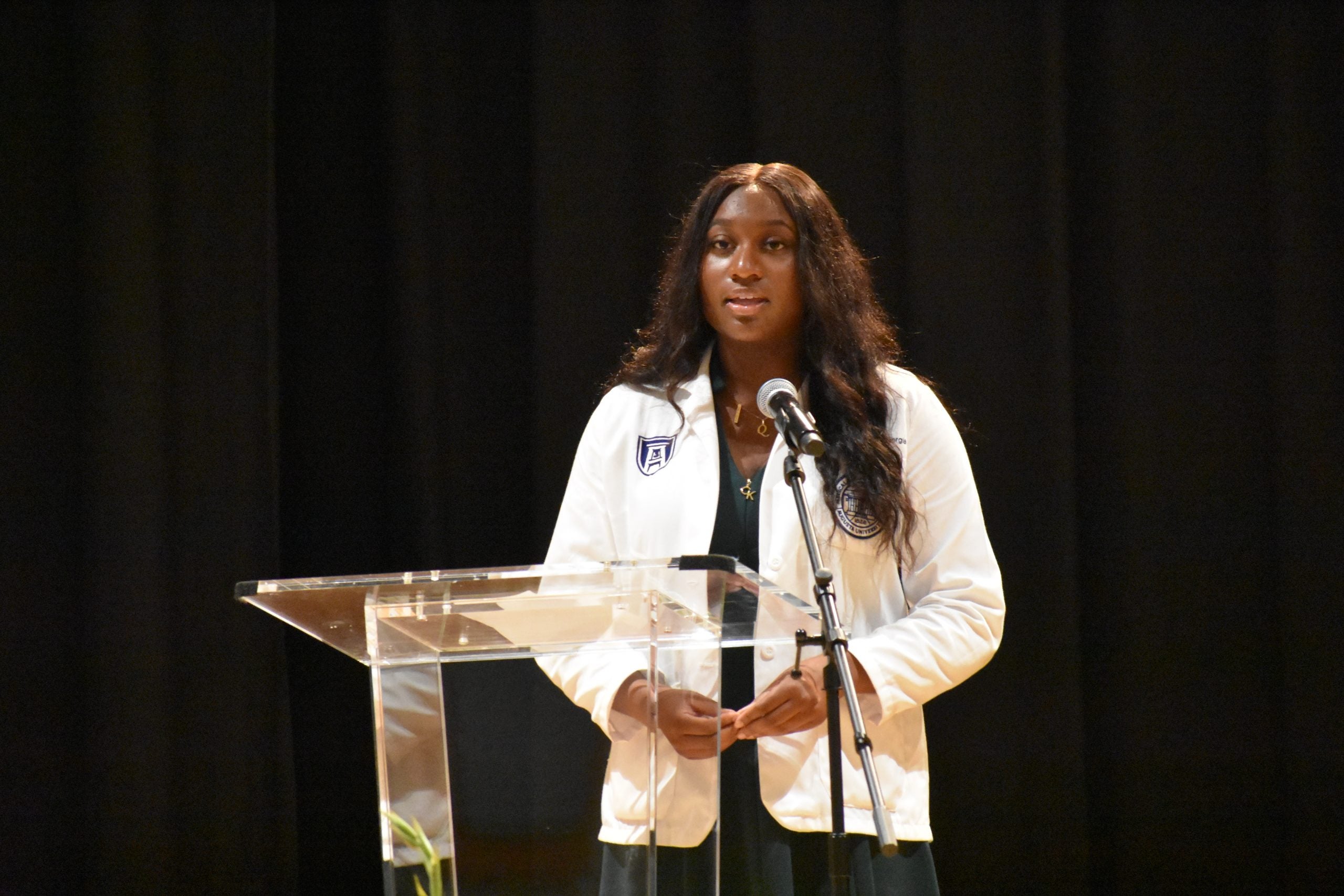At the annual Body Donor Memorial Service held at the Lansing B. Lee Sr. Auditoria Center, on Nov. 11, Augusta University’s Medical College of Georgia’s students and faculty honored over 70 individuals who gifted their bodies to science for the betterment of medical education.
Following a greeting from university President Brooks Keel, the service began with a heartfelt reading of the poem, “Anatomy Teacher.”
“My heart, in the rhythm of its beating, will carry with it the stillness and wonder of your heart lying silent in my hands,” recited Ibukunoluwa Olaoye, a student enrolled in the Physician Assistant Program.
As families shed tears during the ceremony, several students thanked attending families of the deceased for their loved ones’ generous donation.
Raequon Jones, a student in the College of Nursing’s Anesthesia Program, began his speech by asking all in attendance to applaud in appreciation for the donors. He then thanked families for their charitable donation to science and for supporting loved ones who made the decision to continue helping others even in death.
“Your contributions have taught us lessons that our textbooks could never teach us – how even in death, a life can be brought anew,” he said. “This wasn’t just a class; this was a lifelong experience that we will cherish forever.”
Jones said that all students connect with each of their donors which, in the end, makes them all “one family.”
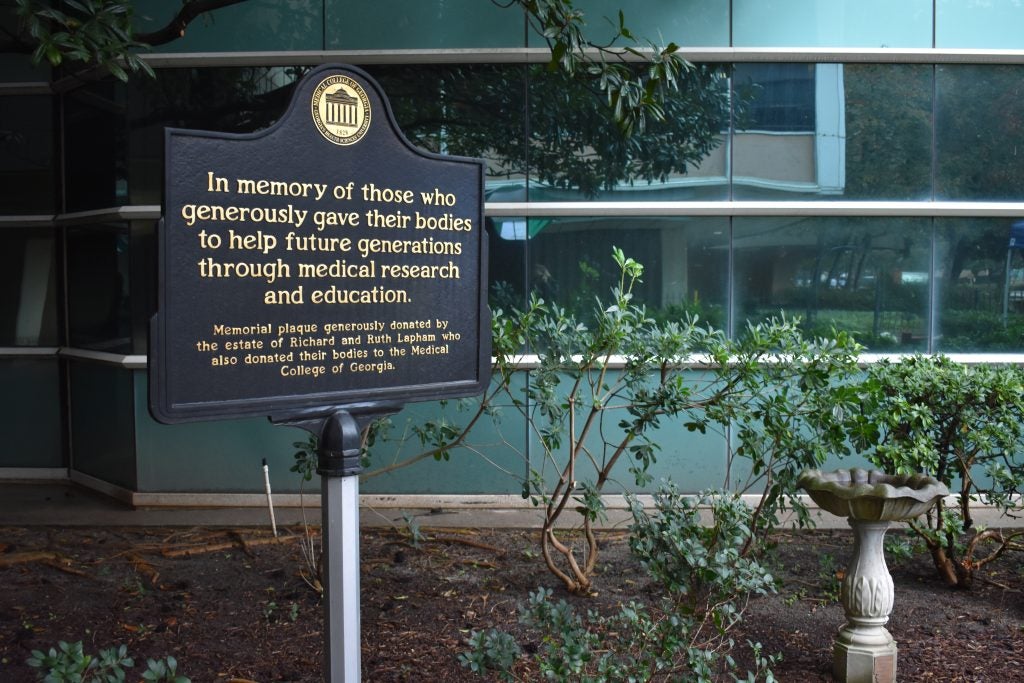
Another student speaker, Peter Natkin of the Medical Illustration Program, said each donor body served as another teacher that helped mold students’ medical education and provided them with clarity and respect for the human body’s inner workings.
Natkin said it was an education that no picture, drawing, diagram or video could replicate. To him, they gave an incredible example of selflessness from which everyone could learn; something which he described as “unquantifiable.”
“It has enabled us to move beyond the general knowledge of anatomy,” he said. “It is important to emphasize that the donors have allowed us to develop a deep wealth of anatomical knowledge that we will have and use throughout our entire careers … they will forever impact a multitude of communities through the work we do.”
Natkin ended by highlighting that every piece of accurate medical art he and other students from the program will create in the future is dependent on the foundation of education that the donors gave them – through this medical wisdom and many other students, the memory and impact of the donors will live on.
“Like a masterpiece from da Vinci, the lessons and illustrations from our donors will live on and for that we are forever grateful,” he said.
Next, Margrett Garrett, a student of the Medical College, recounted the story of her great grandmother who died from cancer and gave her body to science as her last gift to others.
Garrett said her great grandmother did not want to let cancer have the last word in her life and she wanted to have a lasting impact. By donating her body, she achieved her goal of making the world a better place, right past the very end.
“She wanted her death to be beautiful and meaningful,” she said. “She wanted her death to make a difference, but I don’t think she fully understood just the difference she made.”
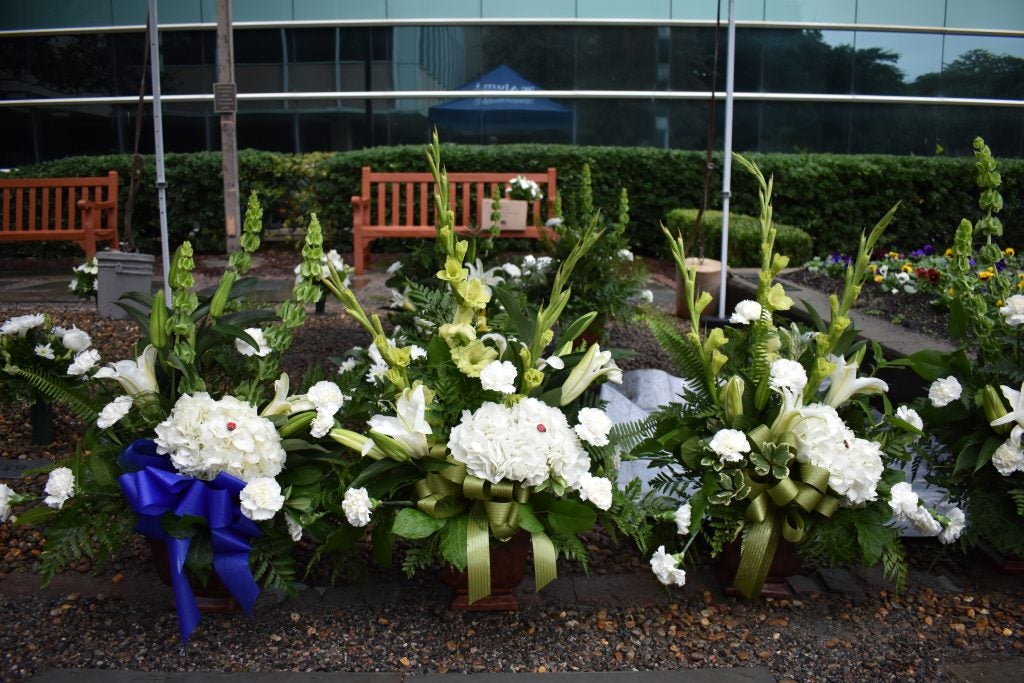
Garrett said while textbook information and lectures can be forgotten, she could confidently affirm that students, including herself, would never forget their interactions with the donors. As their first patient, a donor’s story and memory will forever be cemented into students’ hearts.
“I have learned much more from the body donors here at MCG, than I have learned in the 18 months spent at the lecture halls,” she said. “The day we met our first patient, your loved ones, was an emotional one … I want you to know that whoever this person is to you is so loved and appreciated by us. We never once forgot that they lived a beautiful life before ending up in our care as our first patient.”
While Garrett said her grandmother missed out on experiencing a lot of family memories, because of her gift to medicine, many others got to celebrate great times with the people they loved most – something Garrett said the other donors will also give.
“I am a better person because of it, and I’ll be a better doctor because of it too,” she said. “We all will.”
After other students also called the donors’ bodies “priceless,” “unforgettable” and “life saving,” it was clear to families that their loved ones’ donation did not go unappreciated and were cherished by others.
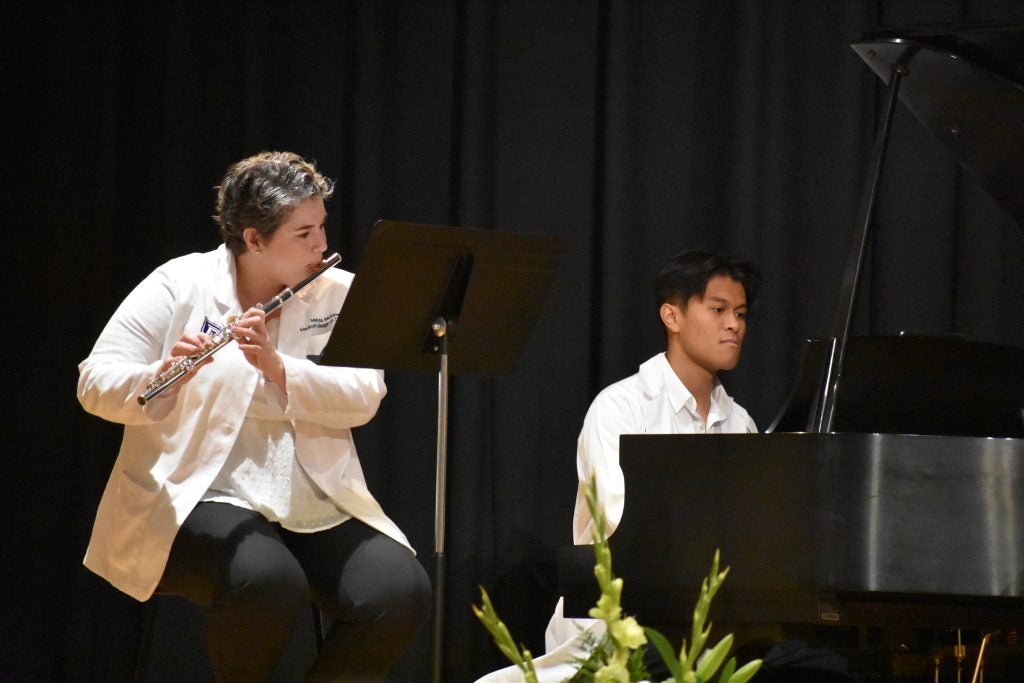
MORE: Lung cancer month marked at Augusta University
Rev. Jeffrey Flowers, director of the Department of Spiritual Care at Augusta University, said he believed the ceremony was important because it allowed students to reflect on the donors while also giving families much needed closure. Flowers said it was also an honorable way to celebrate others’ lives through thankfulness and education.
Most importantly, Flowers said the reading of each name was necessary because it mirrored how each student got to know their individual donor. By studying parts such as hands and feet, Flowers said students learn small details about each – whether they worked with their hands, if they were active and even unique anomalies.
“They allowed us to see how the human body is complex, unique and perfectly woven together,” said Kyra Urquhart-Foster. “Your family members not only taught us about anatomy, but also taught us about selflessness and altruism. I am so grateful that my donor, who even in her last moments in life, thought about how she could give back to the world.”
The ceremony also included musical performances from medical students, and concluded with an Augusta Highlander, Mark Cheek, playing “Amazing Grace” on the bagpipes.
As families left the auditorium together with tear-filled eyes, students and faculty thanked them once more and shook hands as they departed, carrying with them the notion of loved ones being forever valued.
“While it seems that their story has ended, the education that they have provided will live on forever,” said Garrett. “While your loved one’s physical life here on Earth has ended, the lifesaving gifts they provided will never die.”
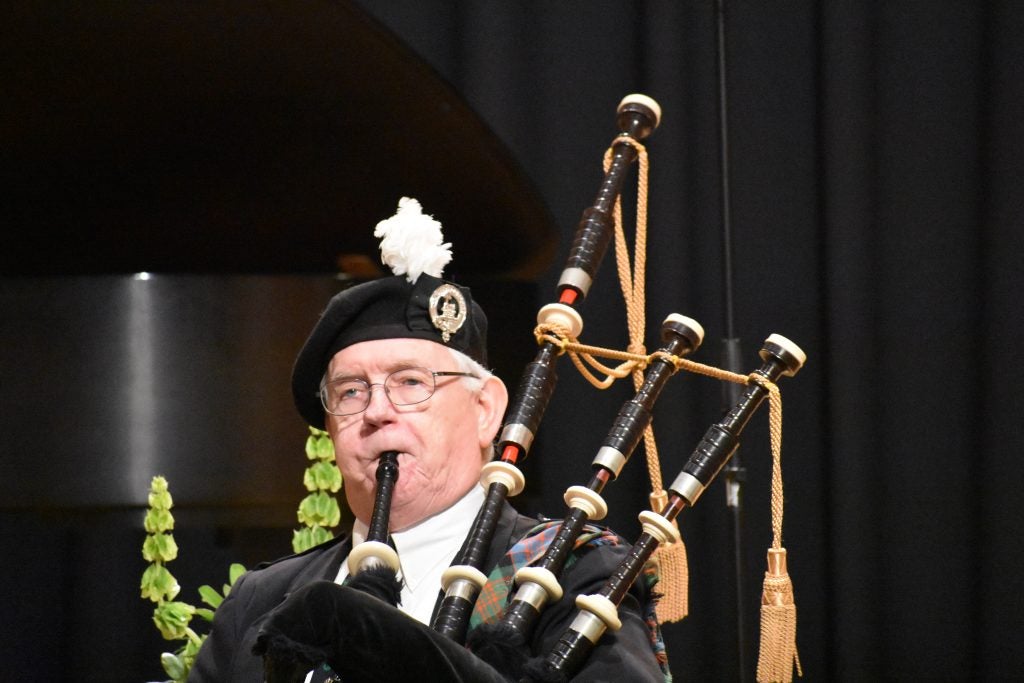
Liz Wright is a staff writer covering education and general assignments for The Augusta Press. Reach her at liz@theaugustapress.com

